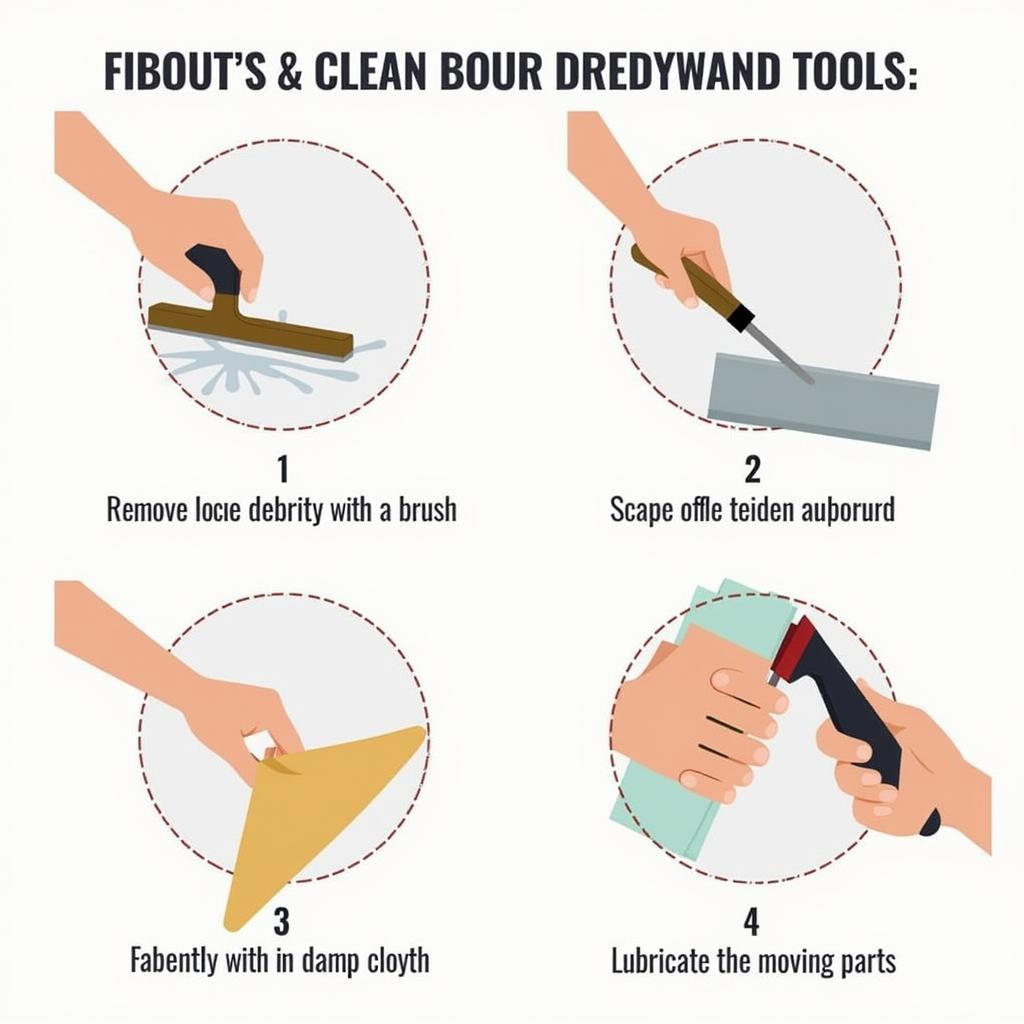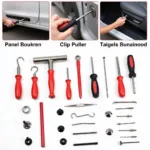New drywall tools are an investment, and proper care ensures they remain reliable partners on every job. Taking the time to clean, maintain, and store your tools correctly can significantly extend their lifespan, saving you money and frustration in the long run. This guide covers everything you need to know about new drywall tool care, from basic cleaning to specialized maintenance for different tool types.
Why New Drywall Tool Care Matters
Maintaining your new drywall tools isn’t just about keeping them shiny; it’s about ensuring they perform optimally and safely. Neglecting cleaning can lead to rust, corrosion, and build-up, affecting the tool’s efficiency and potentially compromising the quality of your work. Regular maintenance can also prevent premature wear and tear, saving you from costly replacements down the road. Think of it this way: a little preventative care now saves a lot of headaches later.
Essential Cleaning Practices for Your Drywall Tools
After each use, basic cleaning is crucial. This involves removing dust, debris, and dried compound. A stiff brush, scraper, and damp cloth are your best allies in this process. For stubborn dried compound, soaking the tool in warm water can help loosen it. Remember to dry your tools thoroughly after cleaning to prevent rust. Don’t forget to lubricate moving parts with a suitable lubricant after cleaning and drying.
Specific Care for Different Drywall Tools
Different tools require slightly different approaches to care. For instance, taping knives benefit from a light sanding to remove any burrs or nicks. Drywall saws should be checked for dull or damaged blades and replaced as needed. For powered tools like drywall sanders, regular filter cleaning and proper cord storage are essential. By understanding the specific needs of each tool, you can tailor your care routine for optimal performance and longevity.
Storage Tips for Long-Term Protection
Proper storage is just as important as cleaning and maintenance. A dry, clean, and organized storage space is ideal for preventing rust and damage. Avoid storing tools directly on concrete floors, as moisture can contribute to rust. Toolboxes, wall-mounted racks, and designated storage cabinets are excellent options for keeping your tools organized and protected.
Addressing Common Drywall Tool Issues
Even with meticulous care, issues can arise. A dull taping knife can be sharpened using a honing steel or sandpaper. Rust can be removed with a wire brush or rust remover, followed by a thorough cleaning and lubrication. For powered tools, consult the manufacturer’s instructions for troubleshooting and maintenance.
What if my drywall saw blade breaks?
Replace it immediately with a blade of the same type and size. Using a damaged blade can be dangerous and lead to uneven cuts.
How often should I lubricate my drywall tools?
After each cleaning and before storing them, especially for tools with moving parts.
Expert Insights on New Drywall Tool Care
“Investing in quality drywall tools is only half the battle,” says John Miller, a seasoned drywall contractor with over 20 years of experience. “Proper maintenance is the key to maximizing their lifespan and ensuring they perform consistently on every job.”
“Don’t underestimate the importance of regular cleaning,” adds Sarah Johnson, a professional drywall finisher known for her precise work. “Even a few minutes of cleaning after each use can prevent build-up and extend the life of your tools significantly.”
Conclusion: Keep Your Drywall Tools in Top Shape
New drywall tool care is a simple yet crucial aspect of any drywall project. By following these guidelines for cleaning, maintenance, and storage, you can ensure your new drywall tools remain in top condition, providing years of reliable service and helping you achieve professional results on every job.
FAQ
- What’s the best way to remove dried drywall compound from my tools? Soaking them in warm water can help loosen stubborn compound.
- How often should I sharpen my taping knives? Sharpen them as needed, whenever they feel dull.
- What type of lubricant should I use on my drywall tools? Use a light machine oil or a specialized tool lubricant.
- Can I store my drywall tools in my garage? Yes, but ensure the area is dry and protected from the elements.
- What should I do if my drywall sander isn’t working properly? Consult the manufacturer’s instructions or contact a qualified repair technician.
- How can I prevent rust on my drywall tools? Keep them clean, dry, and stored in a dry environment.
- Where can I find replacement parts for my drywall tools? Contact the manufacturer or check with local hardware stores.
Need further assistance? Contact us via WhatsApp: +1(641)206-8880, Email: [email protected], or visit us at 910 Cedar Lane, Chicago, IL 60605, USA. Our 24/7 customer support team is ready to assist you.
Are you interested in learning more about specific drywall techniques? Check out our other articles on [link to other articles]. Do you have questions about other tool maintenance? We’ve got you covered! Visit [link to other FAQ pages].


